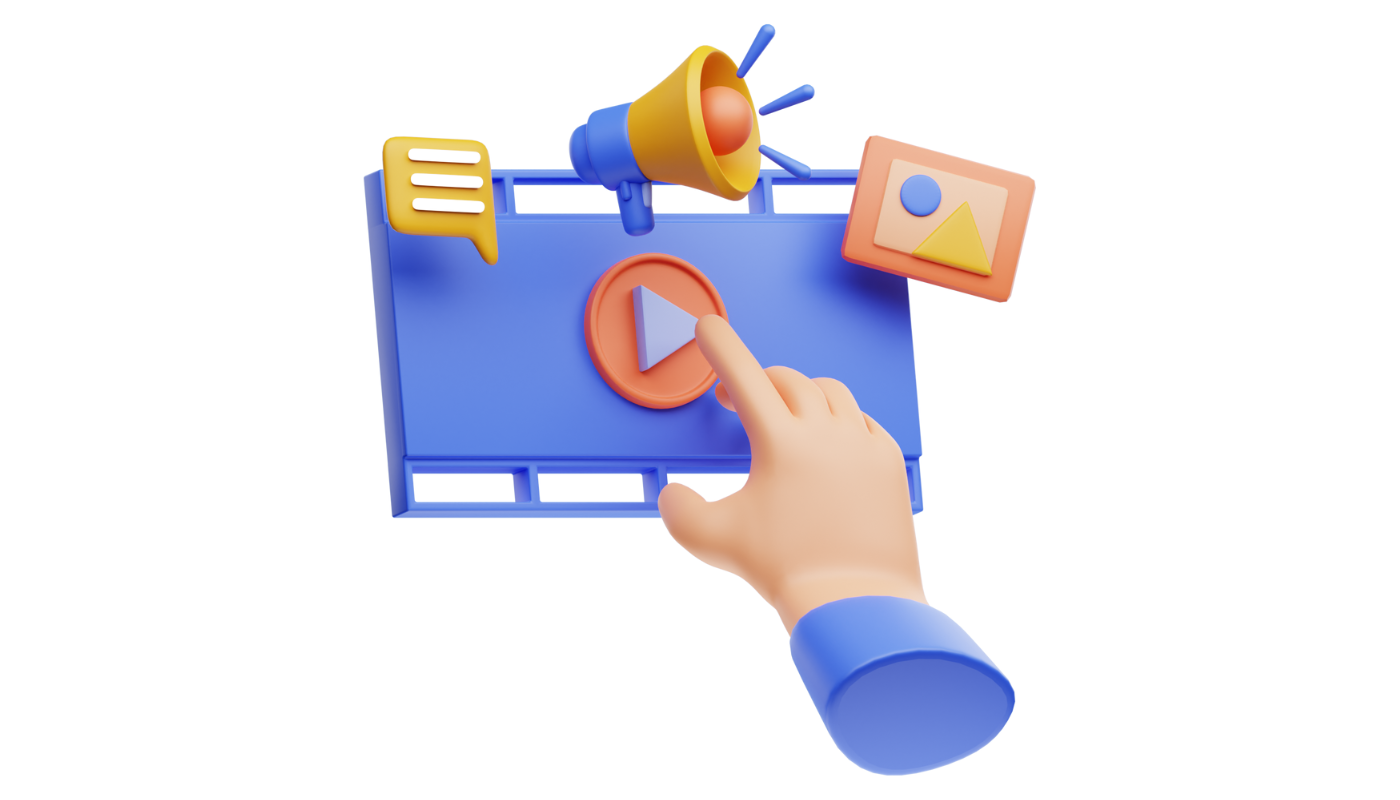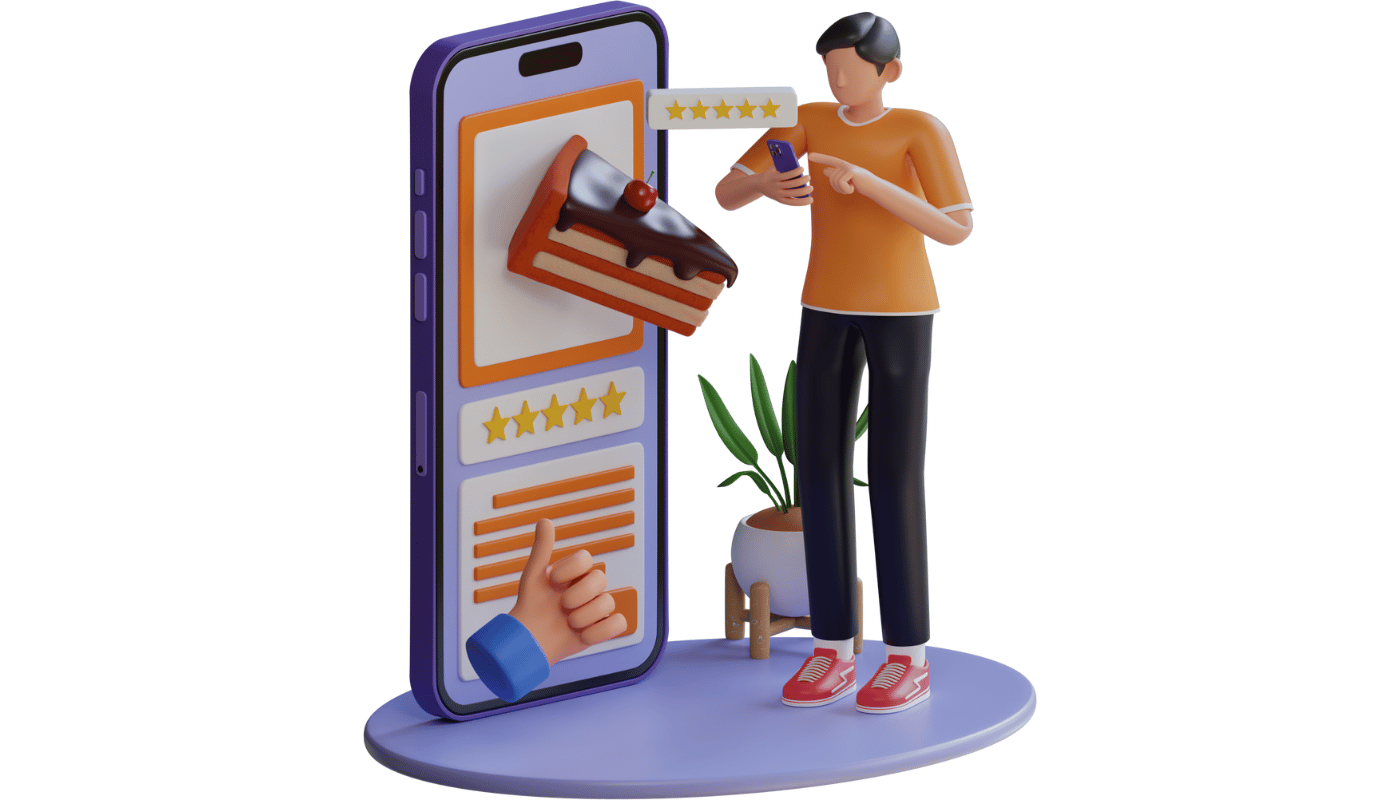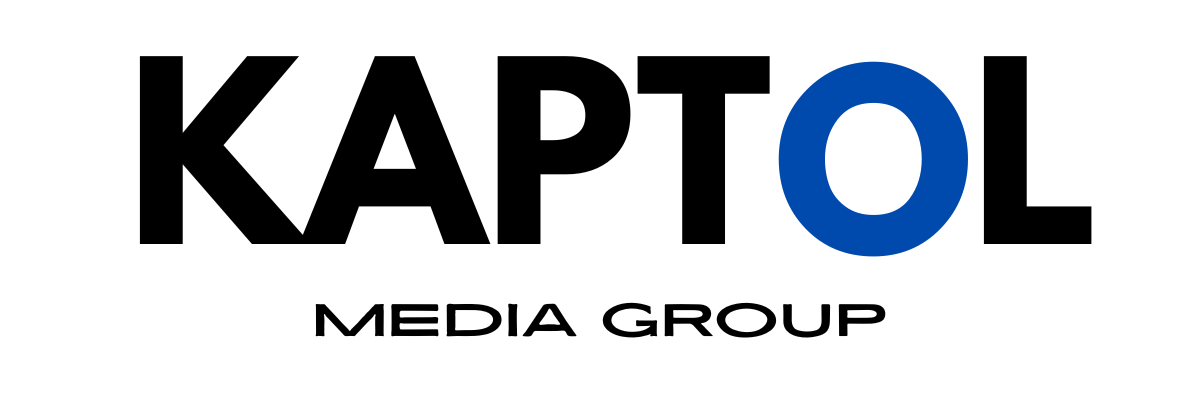10 Reasons You Should Love Blogging
Blog posts are a great way to get recognised within your community and share your voice.
Here are the top 10 reasons you should love writing blog posts.
1. Express Yourself Creatively Through Blogging
Writing blog posts is a powerful avenue for creative expression, enabling you to share your voice in a way that is both personal and impactful.
Here's why this aspect of blogging is so fulfilling:
A Canvas for Your Thoughts:
Blogging offers a virtual canvas for your thoughts, ideas, and stories. Each post can be crafted with words that paint vivid images, evoke emotions, and engage readers. Whether it’s through storytelling, informative content, or opinion pieces, your blog is your space to shape as you see fit.
Showcase Your Unique Perspective:
Everyone has a unique way of viewing the world, and blogging allows you to share your personal insights and experiences. This can be particularly powerful in niches that benefit from diverse viewpoints, such as travel, food, culture, technology, and more. By sharing your unique perspective, you enrich the conversation and provide value that only you can offer.
Experiment with Different Styles and Formats:
Blogging isn’t confined to just written posts; it includes multimedia elements like images, videos, and interactive content. You can experiment with different post formats – from how-to guides and listicles to personal narratives and interviews. This variety not only keeps your creative juices flowing but also caters to different audience preferences, making your blog more engaging.
Develop a Creative Routine:
Regularly updating your blog encourages you to establish and maintain a creative routine. This discipline can be incredibly beneficial, as it ensures that you’re constantly developing ideas and thinking creatively. Over time, this process can enhance your ability to think outside the box and find creative solutions in other areas of your life as well.
Artistic Freedom and Personal Growth:
Unlike many other forms of media, blogging offers complete artistic freedom. You control every aspect of your blog, from the design and layout to the topics you choose to cover and the tone you adopt. This freedom is not just liberating; it also promotes personal growth as you learn to trust your instincts and refine your voice.
In essence, blogging is not just about sharing content with the world; it's a form of personal and creative expression that allows you to discover and define who you are while connecting with others on a meaningful level.
Whether you're a seasoned blogger or just starting out, embracing the creative aspects of blogging can lead to a rewarding and enriching experience.
2. Build Your Expertise Through Blogging
Writing blog posts on a specific topic can be an exceptional way to build and demonstrate your expertise.
This practice not only enriches your knowledge but also solidifies your status as an authority in your chosen field.
Here’s why and how blogging is an effective tool for expertise development:
Continuous Learning:
One of the foundational elements of blogging as a form of expertise building is the necessity for continuous learning. To write informative and accurate posts, bloggers must stay up-to-date with the latest developments in their field. This constant research and learning process naturally enhances your understanding and keeps you on the cutting edge of your industry.
Detail-Oriented Exploration:
Each blog post you write pushes you to explore a particular aspect of your subject in depth. This could involve presenting complex information in an accessible way, comparing differing viewpoints, or applying theoretical knowledge to real-world scenarios. Such detailed exploration helps you grasp nuances that might be overlooked by casual observers, further deepening your expertise.
Feedback and Engagement:
Publishing your thoughts and research findings invites feedback from readers, which can be invaluable in refining your knowledge and assumptions. Questions posed by engaged readers can prompt further investigation, challenge your conclusions, or reveal alternative perspectives that you hadn't considered. This interactive cycle of sharing and receiving feedback is crucial for intellectual growth.
Building a Professional Network:
Regular blogging about your area of expertise can attract the attention of other experts and professionals in the field. It can lead to networking opportunities such as collaborations, guest blogging invitations, or even speaking engagements. Each of these opportunities not only broadens your professional network but also reinforces your credibility and authority.
Showcasing Your Knowledge:
A well-maintained blog serves as a comprehensive portfolio that showcases your knowledge and thought leadership. For professionals, this can be particularly beneficial. Whether you’re looking to change careers, gain clients, or engage with peers, your blog provides tangible evidence of your expertise and dedication to your field.
Creating Opportunities for Teaching:
As you build your reputation through blogging, you also position yourself as a teacher and mentor within your community. This can lead to opportunities to create workshops, webinars, or courses, expanding your influence and allowing you to monetise your expertise.
Blogging is much more than just a writing exercise; it’s a dynamic way to engage deeply with your subject matter, challenge yourself intellectually, and build a professional reputation as an expert. By committing to regular blogging, you open doors to continual learning, community engagement, and professional growth, all of which are invaluable in today’s knowledge-driven economy.

3. Connect with a Global Audience Through Blogging
One of the most exhilarating aspects of blogging is the potential to connect with a global audience. This opportunity to reach and interact with readers from all corners of the world not only broadens your influence but also enriches your understanding of diverse perspectives.
Here’s why connecting with an international audience is a compelling reason to love blogging:
Breaking Geographic Barriers:
The digital nature of blogs allows you to cross geographic boundaries with ease. Your posts can be accessed by anyone with an internet connection, regardless of where they are in the world. This global reach is particularly powerful for sharing ideas, spreading knowledge, and influencing discussions across different cultures and societies.
Cultural Exchange:
When you connect with readers from various backgrounds, you engage in a form of cultural exchange. Readers can bring their own cultural insights into the discussions on your blog, offering comments that provide different perspectives on your topics. This can lead to a richer understanding of global viewpoints and challenges, and it can enhance your own cultural sensitivity and awareness.
Building a Diverse Community:
As you attract a global audience, you can foster a community of like-minded individuals who are interested in your content. This community might consist of people from vastly different backgrounds and experiences, which can add depth to the conversations on your blog through varied insights and debates. Such a community not only supports your blog’s growth but also enriches each member through shared learning.
Expanding Your Influence:
Reaching an international audience can significantly expand your influence as a blogger. You can impact global discussions, contribute to international understanding of particular issues, and position yourself as a global thought leader in your niche. This expanded influence can open up further opportunities such as international collaborations, partnerships, or even speaking engagements.
Personal Growth and Global Insight:
Interacting with a global audience challenges you to think more broadly about the topics you write about. You’ll need to consider how your content is relevant to people in different parts of the world and how different cultural contexts might interpret your messages. This encourages personal growth and a more nuanced understanding of global issues.
Enhanced Visibility and Opportunities:
By reaching a global audience, your blog's visibility increases, which can lead to various opportunities such as advertising, sponsorships, and professional collaborations that might not be available within a more localized or niche market.
These opportunities can be both financially rewarding and professionally enriching.
The ability to connect with a global audience is one of the most transformative aspects of blogging. It not only allows for an exchange of ideas across cultures but also helps in building a diverse community, expanding your influence, and fostering personal and professional growth. This worldwide connectivity is a powerful reason to engage passionately with blogging, as it brings the world to your doorstep and your ideas to the world.
4. Improve Your Writing Skills Through Blogging
Regular blogging is not just about sharing insights or stories—it's also a powerful way to improve your writing skills. The consistent practice of composing blog posts can dramatically enhance clarity, persuasiveness, and efficiency in your writing.
Here’s how blogging can refine your writing abilities:
Practice Makes Perfect:
Writing regularly is key to improvement. Each blog post offers an opportunity to practice writing techniques, from structuring your thoughts clearly to selecting the right words for maximum impact. Over time, this frequent practice helps iron out kinks in your writing style, making it more fluid and natural.
Feedback Loop:
One of the great benefits of blogging is the immediate feedback you can receive from readers. Comments and interactions can provide direct insights into how your writing is perceived, which areas are effective, and what might need improvement. This kind of feedback is invaluable as it guides your learning and helps you to focus on refining specific aspects of your writing.
Diverse Writing Styles:
Blogging allows you to experiment with different writing styles and formats.
Whether it’s informative tutorials, engaging narratives, or compelling arguments, each type of post can help you develop a specific set of skills. This variety ensures that your writing becomes versatile and adaptable to different contexts and audiences.
Enhanced Research Skills:
Effective blogging often involves a good amount of research, especially if you’re covering technical topics, current events, or unfamiliar subjects. This research process is integral to producing high-quality content and also improves your ability to assimilate and relay complex information in an understandable way, thereby enhancing your overall writing skills.
Discipline and Deadlines:
Maintaining a blog involves a commitment to publishing regularly, which can instill a sense of discipline and time management. The process of planning, writing, editing, and meeting deadlines is a rigorous exercise in maintaining a workflow that ultimately benefits your writing pace and efficiency.
Expanding Vocabulary:
As you explore new topics and ideas for your blog, you’ll likely encounter and incorporate new vocabulary. Regularly using these words in context helps to integrate them into your vocabulary, making your writing more varied and precise.
Writing for an Audience:
Blogging is unique because it’s both personal and public. Writing for an audience encourages you to think about how your words affect others, teaching you to write more empathetically and considerately. It pushes you to make your writing accessible and engaging, which is a crucial skill in any professional or personal communication.
Blogging offers a multifaceted platform for developing your writing skills. The process of crafting blog posts trains you in the art of communication, enhances your ability to engage an audience, and sharpens your technical proficiency in writing. Whether you're a novice or an experienced writer, blogging can provide valuable practice that impacts all areas of your life where communication is key.
5. Boost Your SEO Through Blogging
Blogging is a powerful tool for enhancing your website's Search Engine Optimisation (SEO).
By consistently publishing high-quality blog posts, you can improve your site’s visibility and attract more organic traffic.
Here’s how blogging helps boost your SEO:
Keyword Integration:
Blogging allows you to incorporate relevant keywords naturally into your content. These keywords help search engines understand what your content is about and match it with the queries of users. By carefully researching and using targeted keywords that your audience is searching for, you can increase the likelihood of your blog appearing in search results, thereby driving more traffic to your site.
Fresh Content:
Search engines favour websites that frequently update their content.
Regular blogging ensures that your site is constantly refreshed with new posts, which can signal to search engines that your website is active and relevant. This freshness factor is a key component in improving your site’s search rankings.
Longer Dwell Time:
Quality blog content can keep visitors on your site longer.
Search engines use dwell time (how long visitors stay on your website after arriving from a search result) as an indicator of content quality and relevance. Engaging blog posts increase the time visitors spend on your site, which can positively affect your search rankings.
Backlink Attraction:
Exceptional blog content can earn backlinks from other reputable websites.
Backlinks are one of the most significant ranking factors for search engines. They act as endorsements of your content’s credibility and authority. By creating informative, useful, or unique content, you can increase the likelihood of other sites linking back to yours, which enhances your SEO.
Enhanced User Engagement:
Blog posts that are interesting and valuable encourage readers to interact with your content through comments, shares, and likes. This level of engagement can lead to increased visibility and further signal to search engines that your content is valuable, thereby improving your SEO performance.
Structured Content Using SEO Best Practices:
Blogs allow you to structure your content using SEO best practices like headers, meta descriptions, alt tags for images, and more. These elements help search engines crawl and index your content more effectively, improving your visibility. Well-structured content can also enhance the user experience, making it easier for readers to digest and navigate your information.
Social Media Integration:
Blog posts are easily shared on social media, increasing your content’s reach and visibility. While social media signals are not a direct ranking factor, the increased visibility can lead to more traffic to your blog and potentially more backlinks, both of which are beneficial for SEO.
Long-Tail Keyword Opportunities:
Blogging is particularly effective for targeting long-tail keywords.
These are more specific phrases that visitors are likely to use when they are closer to a point of purchase or when using voice search. Long-tail keywords are generally less competitive but can attract more qualified traffic to your site.
Blogging is an essential strategy for improving SEO. By regularly producing relevant, high-quality content and following SEO best practices, you can significantly enhance your website's visibility and attract more organic traffic. This not only helps in gaining new visitors but also in establishing your site as an authoritative source in your niche.

6. Generate Income Through Blogging
Blogging offers numerous opportunities to generate income, making it not just a creative outlet but also a potentially lucrative venture.
When monetised effectively, a blog can transform into a significant income stream.
Here’s a look at the various ways you can make money through blogging:
Affiliate Marketing:
One of the most popular methods for bloggers to earn money is through affiliate marketing.
This involves promoting other companies' products or services in your blog posts and earning a commission for every sale made through your unique affiliate link. To maximise earnings, it's important to choose affiliate products that are relevant to your audience and content.
Sponsored Posts:
As your blog grows in popularity and reach, companies may pay you to write posts that promote their products or services. These sponsored posts can be a substantial source of income, especially if the products align well with your audience’s interests. Transparency with your audience about sponsored content is crucial for maintaining trust.
Display Ads:
Another common way to monetise a blog is through displaying ads.
Platforms like Google AdSense can place ads relevant to your content and audience on your blog. You earn money based on the number of impressions or clicks these ads receive. Effective placement and ensuring that ads do not interfere with the user experience are key considerations.
Selling Products or Services:
If you have your own products or services, your blog can be a powerful platform for promoting them. Whether it’s books, courses, workshops, or consulting services, your blog allows you to reach a broader audience who may be interested in what you have to offer.
Subscriptions and Memberships:
Offering exclusive content, perks, or services to subscribers or members is another way to monetise your blog.
You can create a membership section where premium content is available for a fee. This recurring revenue can be particularly valuable as it provides a predictable income stream.
Digital Products:
Selling digital products like e-books, online courses, or downloadable guides is a fantastic way to leverage the expertise you share on your blog. These products can be created once and sold multiple times without any inventory or shipping costs, making them a highly efficient way of generating income.
Consulting and Freelancing:
If your blog establishes you as an expert in a specific field, you might find opportunities to offer consulting or freelancing services. Many bloggers leverage their visibility and authority to engage in consulting roles, helping other businesses or individuals with specific challenges related to your niche.
Workshops and Webinars:
Hosting workshops and webinars can be a direct way to monetise your expertise.
These can be marketed to your blog audience and provide in-depth knowledge or hands-on experience for a fee.
Email Marketing:
Collecting emails through your blog enables you to build a direct line of communication with your audience. You can use email marketing to promote any of the monetisation strategies mentioned above, enhancing your potential earnings.
Blogging can be much more than a passion project; it can also be a potent source of income.
By exploring various monetization strategies and finding what best aligns with your content and audience, you can turn your blog into a profitable business, providing financial rewards alongside personal and creative satisfaction.
7. Provide Value to Your Audience Through Blogging
One of the most rewarding aspects of blogging is the ability to provide significant value to your audience.
Whether your goal is to educate, inspire, or entertain, the impact of delivering high-quality content can be profound, both for your readers and yourself.
Here's how providing value through your blog posts enhances your blogging experience and benefits your audience:
Educational Value:
Many blog readers seek out posts to learn something new, solve problems, or gain insights into specific topics.
By creating content that is informative and well-researched, you can help your audience understand complex issues, learn new skills, or improve their knowledge in various areas. This educational value not only increases your credibility but also makes your blog a go-to resource in your niche.
Inspirational Value:
Blog posts can also serve as a source of inspiration for readers.
Whether it’s through sharing personal stories of success and struggle or highlighting case studies, your blog can motivate readers to overcome their challenges or pursue their aspirations. Inspirational content often creates a strong emotional connection with the audience, fostering loyalty and frequent visits to your blog.
Entertainment Value:
Blogs can be a form of entertainment, offering readers a break from their daily routine or a way to engage with content that matches their interests. Whether it’s through humorous posts, intriguing stories, or interactive content, entertaining your audience is a valuable service. It helps build a community around your blog and keeps readers coming back for more.
Community Building:
Providing value helps to cultivate a community of engaged readers.
As people find value in your content, they are more likely to share it, comment on it, and interact with it, which can lead to a vibrant community around your blog. This community not only supports your blogging efforts but also enriches the experience by fostering discussions and connections among like-minded individuals.
Personal Fulfillment:
Beyond the tangible benefits to your audience, providing value through blogging offers a profound sense of personal fulfillment. Knowing that your work is making a difference in the lives of others can be incredibly rewarding. This fulfillment often fuels further creativity and dedication to your blogging, creating a positive feedback loop that enhances your content even more.
Feedback and Improvement:
When you focus on providing value, you open the door to feedback from your audience.
This feedback is essential for understanding what your readers find most useful or engaging and can guide your future content creation. It helps you fine-tune your approach and ensures that your blog continues to meet the needs and interests of your audience effectively.
The ability to provide substantial value through your blog posts is a powerful reason to engage in blogging. It not only enhances the lives of your readers by educating, inspiring, and entertaining them but also brings personal rewards that enrich your own blogging journey.
By focusing on the value your content offers, you can build a loyal audience, establish credibility, and enjoy the satisfaction of making a positive impact.
8. Foster Community Engagement Through Blogging
Blogging provides a unique and dynamic platform for building and fostering a community.
This aspect of blogging not only enriches the content you produce but also creates a network of like-minded individuals who can share ideas, provide support, and enhance the overall blogging experience.
Here’s how blogs can help you engage with and cultivate a vibrant community:
Encouraging Interaction through Comments:
One of the most direct ways to foster community on your blog is through the comments section.
By encouraging readers to leave comments, you open the floor to discussions, questions, and feedback. Responding to comments actively is key to nurturing these interactions and making your readers feel valued and heard.
Leveraging Social Media:
Social media platforms are essential for extending the reach of your blog and engaging with your community in a more dynamic environment. Sharing your posts on social media invites further interaction and discussion, and it also allows your audience to share your content easily with others. This not only increases your blog’s visibility but also helps create a sense of community among your readers.
Guest Posts and Collaborations:
Inviting other bloggers or experts to contribute guest posts to your blog can introduce your audience to new voices and perspectives, enriching your community’s experience. Collaborations can also extend your reach to the guest contributors’ audiences, fostering a larger and more diverse community.
Hosting Webinars or Live Sessions:
Engaging with your community doesn’t have to be limited to written content.
Hosting webinars, live Q&A sessions, or interactive workshops can be a fantastic way to connect with your audience in real-time. These live interactions add a personal touch and can significantly enhance community engagement.
Running Contests and Giveaways:
Organising contests or giveaways is another effective method to encourage community interaction.
These events can generate excitement and participation among your readers. They also provide an opportunity to give back to your community, showing your appreciation for their loyalty and support.
Creating Exclusive Content:
Offering exclusive content to subscribers, such as newsletters, behind-the-scenes posts, or members-only webinars, can create a more intimate community atmosphere. This exclusivity can make members feel valued and deepen their connection to your blog and each other.
Utilising User-Generated Content:
Encouraging your readers to submit their own stories, photos, or content can be incredibly engaging.
It gives them a stake in the community and allows them to contribute actively to the blog’s content. This not only diversifies the content on your blog but also builds a collaborative and inclusive community.
Feedback Loops:
Regularly seeking feedback from your community about what they enjoy or would like to see more of can help tailor your content to better meet their needs. This ongoing dialogue ensures that your blog remains relevant to your audience and that your community feels respected and considered.
Fostering community engagement through blogging creates a robust network of interaction and support. By facilitating communication, encouraging participation, and valuing the contributions of your audience, you can build a lively community that enhances the value of your blog and enriches both your experience and that of your readers.
9. Document Your Journey Through Blogging
Blogging provides a unique platform for individuals to document their personal journeys, making it a valuable tool for reflection and growth. Whether it's chronicling life changes, exploring thoughts and feelings, or tracking professional development, blogging allows you to capture these moments in a meaningful way.
Here’s why documenting your journey through blogging can be so rewarding:
A Personal Archive:
Each blog post acts as a snapshot of a specific moment in your life, capturing your thoughts, emotions, and experiences at that time. Over the years, these posts accumulate into a rich archive that you can look back on. This collection serves not just as a reminder of where you've been, but also as a record of how you've evolved over time.
Reflection and Growth:
Writing about your experiences forces you to reflect on them, which can be a powerful tool for personal growth. This reflection process can help you understand yourself better, make sense of your choices, and see your growth. It’s also a therapeutic way to process events and emotions, helping you move forward with greater insight and clarity.
Sharing Your Story:
While your blog is a personal diary, it’s also accessible to others, which means your journey can inspire and encourage readers who may be facing similar challenges or milestones.
Sharing your story openly can foster connections and support from others who resonate with your experiences.
Motivation and Accountability:
Documenting your goals and aspirations through your blog can serve as a motivational tool.
Publicly setting goals can increase your accountability, pushing you to pursue them more diligently. Your readers can become a supportive community, cheering you on and offering encouragement.
Creative Expression:
Blogging about your journey is not only a narrative exercise but also a creative one.
You can experiment with different writing styles, multimedia elements like photos and videos, and interactive formats to express your experiences creatively. This creativity enhances the enjoyment of documenting your journey and keeps your audience engaged.
Educational Resource:
For those who share journeys related to specific topics like health, travel, education, or personal development, your blog can become an educational resource for others.
Readers may benefit from your insights and lessons learned, using your experiences as guidance for their own paths.
Legacy Building:
Over time, your blog can become a legacy project, something to pass on to family, friends, or even strangers who might find value in your life’s story long after the blog is no longer actively updated. It becomes a testament to your life and times, holding personal and possibly historical significance.
Documenting your journey through blogging is not only beneficial for personal reflection and growth but also serves as a valuable way to connect with others and leave a lasting impact. It turns the blog into a living document of your life’s progress, filled with insights, milestones, and memories that are preserved for future reflection and inspiration.

10. Flexibility and Freedom Through Blogging
Blogging stands out as a pursuit that offers remarkable flexibility and freedom, making it an especially appealing activity for many.
Whether it's the choice of topics, the timing of posts, or the location from which you work, blogging gives you the autonomy to operate on your own terms.
Here's how you can have flexibility and freedom from the blogging experience:
Choose Your Topics:
Unlike many other forms of writing, blogging doesn’t restrict you to specific topics or editorial guidelines.
You have the freedom to choose what you write about. This means you can focus on areas that genuinely interest you or about which you are passionate. Whether it’s a personal hobby, a professional field, or random thoughts and musings, the choice is yours.
Set Your Own Schedule:
Blogging allows you to control when and how often you post.
Whether you prefer a structured posting schedule or a more sporadic approach, you can set a rhythm that fits your lifestyle and commitments. This flexibility is particularly appealing to those who need to balance multiple responsibilities or prefer working at unconventional times.
Work from Anywhere:
One of the most liberating aspects of blogging is the ability to work from virtually anywhere.
All you need is a computer and an internet connection. Whether you’re at home, on a beach, or in a café across the globe, you can keep your blog running.
This mobility is ideal for those who love to travel or need to move frequently.
Creative Control:
As a blogger, you have complete creative control over your content and your website’s design.
From the layout of your blog to the photos and videos you include, every element can be tailored to match your vision. This creative freedom not only makes blogging more enjoyable but also lets you create a unique and personal online presence.
Monetisation on Your Terms:
Blogging also gives you the freedom to monetise your work in a way that suits you best.
Whether through ads, sponsored posts, selling products or services, or other methods, you can choose how you want to generate income from your blog. This can be especially rewarding, as it allows you to align your earning strategies with your personal and ethical values.
Adapting to Audience Feedback:
With the direct line of communication that blogs provide, you can quickly adapt to your audience’s feedback and preferences. This agility allows you to tweak your content strategy based on real-time input, ensuring that your blog remains relevant and engaging to your readers.
Long-Term Possibilities:
Blogging offers the possibility to pivot or expand into other areas as opportunities arise.
You might start with a focus on a specific niche and later broaden your scope or shift to entirely different subjects as your interests evolve. This adaptability is a key advantage that keeps blogging exciting and personally rewarding.
In conclusion, the flexibility and freedom that blogging offers are unmatched by many other professional or creative pursuits.
This independence not only enhances your work satisfaction but also empowers you to shape your blogging journey in a way that aligns with your personal goals, lifestyle, and values.
Whether as a hobby or a career, blogging can provide a fulfilling and versatile outlet for your creativity and expression.











